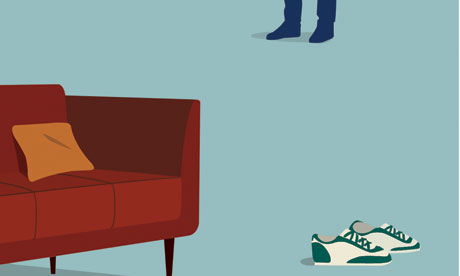
I don't know about you, but I'm starting to get sick of marshmallows, and I haven't even consumed one since an unfortunate incident at a barbecue several years ago. (Apparently, gelatin and corn syrup get mouth-laceratingly hot if held over a flame for long enough. Who knew – except anyone with a scrap of common sense?) These days, it seems hard to escape references to Walter Mischel's "marshmallow experiments", in which children were left alone in a room and promised two marshmallows if they could resist the lure of the solitary one on the table before them. Those who could delay gratification, it emerged, did better in life, excelling in exams and jobs, and avoiding drug problems. The crusty Victorian notion of willpower is definitively back on the agenda: in a spate of books and much-forwarded TED talks, we've learned it's like a muscle – it gets stronger with use – but also that it's a depletable resource, so we shouldn't overuse it. More political will, it's claimed, is what's needed to solve the planet's problems. With more personal will, meanwhile, we could conquer our bad habits for ever.
All of which would be easy to swallow (unlike that overheated marshmallow) if it weren't for one rarely reported side-street down which Mischel's confectionery adventures took him. In a 1965 study, it emerged that a child's ability to resist temptation, though supposedly based on will, could be influenced by comments made by experimenters, within earshot, about the benefits of postponing pleasure. In their book Change Anything, habits researcher Kerry Patterson and his colleagues explain how they took this a step further, teaching kids some basic distraction skills, such as mouthing the words to their favourite bedtime story. Marshmallow resistance rates shot up. Clearly, the children hadn't received a magic willpower injection. They hadn't even given their willpower muscles a workout. They'd simply learned a skill. Surprisingly often, Patterson says, the challenges we think of as requiring will might really be a matter of basic skills.
I should note that this research happened at an establishment calling itself the Change Anything Labs, in Utah, and appears to be proprietary. Still, the shift in perspective is worth contemplating. What if your as-yet-unfulfilled life plans didn't need more will, just skills? In study after (peer-reviewed) study, one such teachable skill stands out as crucial for habit change: deciding on "if-then" rules in advance. First, identify what Patterson et al call "crucial moments" – when you reach the end of the day exhausted, say, and instinctively stumble to the sofa. Formulate a rule, being as specific as possible: "If I find myself stumbling exhausted to the sofa, then I'll put on my running shoes and walk at least as far as the street." True, a strong will makes it more likely you'll follow the rule. But merely knowing that you need to formulate one in the first place – a skill – makes a huge difference. In one study, it increased the proportion of people who stuck to an exercise plan from 39% to 91%.
Start mulling these things and it's easy to see why some psychologists occasionally wonder whether "willpower" really exists in any meaningful sense. Perhaps it's just a label we use to cover a variety of factors, from energy levels to cognitive tricks such as distraction or if-then rules? Next time you chastise yourself for possessing no willpower, comfort yourself with the thought that maybe nobody ever has.
• oliver.burkeman@theguardian.com
Follow Oliver on Twitter

